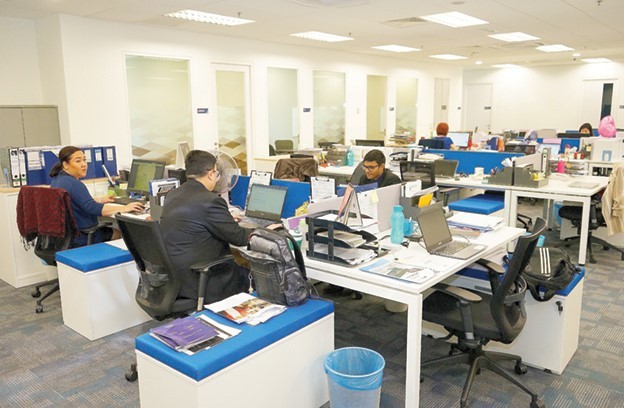
RECRUITMENT firm Randstad Malaysia’s latest report revealed that Malaysian workers prefer employees who offer attractive salaries and benefits, which increased from 2% in 2021 to 74% in 2022.
On the other hand, having a good work-life balance (70%) is ranked second where it has increased by 1% a year before.
According to Randstad’s country director Fahad Naeem, businesses are hiring new talents in order to catch up with their growth and operations as the labour market makes a speedy post-Covid recovery.
“The intense demand for skilled talent across industries has presented job seekers with the opportunity to negotiate for higher salaries and better benefits so that they can improve their work-life balance and have a higher standard of living in Malaysia.
“It is critical for businesses and Human Resource leaders to keep up with the evolving talent expectations. Many Malaysians are concerned about the rising inflation and cost of living,” he said in a statement yesterday.
If the salaries do not match the employee’s needs, they will end up job-hunting for a company that is able to provide them with the expectations to sustain their quality of life.
On the other hand, nine in 10 of the Malaysian respondents have taken matters into their own hands to improve their work-life balance while two in five (44%) worked flexible time slots and some of them worked at home more often (33%).
One in four respondents (23%) worked fewer overtime hours so they can achieve better work-life balance.
“Many Malaysians had the opportunity to reassess how work fits into their life and their career purpose these last couple of years.
“When working flexibly, employees don’t need to worry about commuting during peak hours, which saves a lot of time for workers who have to travel into the city,” he added.
Not only does a hybrid working arrangement relieve stress but also reduces absenteeism or deals with heavy traffic jams.
The number of respondents who work from home has also dropped 18% year-on-year as opposed to 51% in 2022 while some of them want employees who can offer them flexible work arrangements to help improve their work-life balance (54%).
“Malaysians are prioritising work flexibility more than ever. They want to be able to choose where and when they work so that they can schedule personal activities around their working hours,” Naeem mentioned.
Moreover, employees also want their employers to support them more in their healthcare and mental health benefits so they can cope with their changing work-life expectations.
Although the Covid-19 pandemic has made us realise the importance of living healthy, rising healthcare costs have made it difficult for Malaysians to seek early treatment so companies should review their corporate insurance in order to ensure that they are robust enough to attract and retain talent.
“Companies that want to attract talent should pay their employees fairly in exchange for their skills, experience and work contributions.
“If the employee has exceeded expectations, they’ll also be expecting bonuses for project completion and for helping drive more business revenue,” he said.
A majority of the respondents (85%) want their employers to provide upskilling opportunities for both professional and personal growth but only 59% of their employers offer them these opportunities.
Naeem also elaborated that the widening skills gap is what employers and talents face in Malaysia but employers will be able to meet employees’ expectations of the investment in training and development.
“Employers who support their workforce’s desire to upskill are not only helping them feel more fulfilled in their present careers, but they’re retaining talent with actively evolving skill sets for a future-proof workforce.”
Furthermore, three quarters of the respondents are more likely to stay with their employer if they provide them with training opportunities while nearly six in 10 respondents (57%) felt that good training is an important employer value proposition factor they look for in ideal employers.
“Personal career growth is a big priority for Malaysian workers. As technological advancements evolve beyond existing human skills, employees are feeling increased pressure to upgrade their skills in order to stay relevant in their industries and maintain their job security,” Naeem noted.
The 2022 Randstad Employer Brand Research Survey in Malaysia was conducted online in January this year and involved more than 2,500 respondents in Malaysia.
Source: https://themalaysianreserve.com/2022/06/15/malaysian-employees-seek-attractive-pay-work-flexibility/

